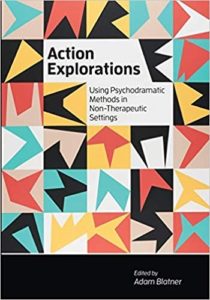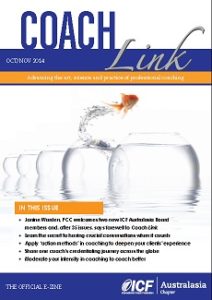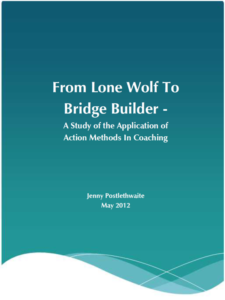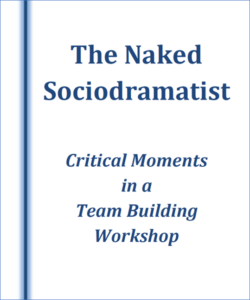Working In Action
The guiding principal of our approach is to have people in their being, with spontaneity, to enable their adequate functioning in the world.
At the core of our work in organisations is a focus on adult learning principles, coupled with concepts and methods drawn from the work of Dr J L Moreno, utilising his theory of interpersonal relations and Action Methods of psychodrama, sociometry, sociodrama and role training.
If our clients can access their inherent spontaneity and creativity and bring that to the situation they are facing then our work together is much more vital and immediate. It is both more effective and rewarding.
The concepts and tools that support are this relatively simple yet profound.
The cornerstone of Action Methods is concretisation – a ‘show don’t tell’ approach - generating an experience that unifies thought, feeling and action, thus deepening and enriching learning and change outcomes.
During a group workshop or training session a group member might recall a difficult incident with a client. Rather than asking her to talk the incident through, the group can be engaged to enable her to re-create the situation.
"The advantages of doing this are that:
- it enables the group to see the scene rather than just hear about it
- it will carry more energy, which will engage the group at both an intellectual and emotional level
- the group can get involved in the interaction by making suggestions, taking on roles, exploring alternatives
- the individual whose scene it is can stand outside it and get a new perspective on it"
Ron Wiener - Creative Training
For example, a client struggling to address the poor performance of one of his team recognised, on reflection, that he had been responding to the situation as a soft hearted conflict avoider. Coaching supported him to develop a new progressive role of firm and fair accountability holder, which in turn produced a lift in performance of the relevant team member and enhanced the self efficacy of the client.
Below : Concretising a complex work situation on the floor, utilising objects and post-it-notes, enabled the participants at this workshop to stand back and gain a clearer perspective on the interdependencies of their separate activities and how to better organise their programme of work for the coming year.
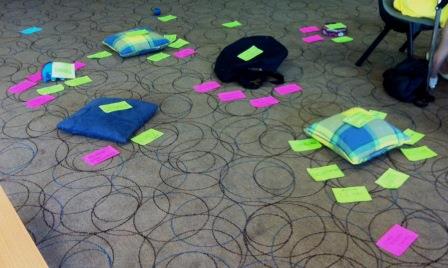
Want to read more about our application of Action Methods in coaching?
Click on the covers ...

